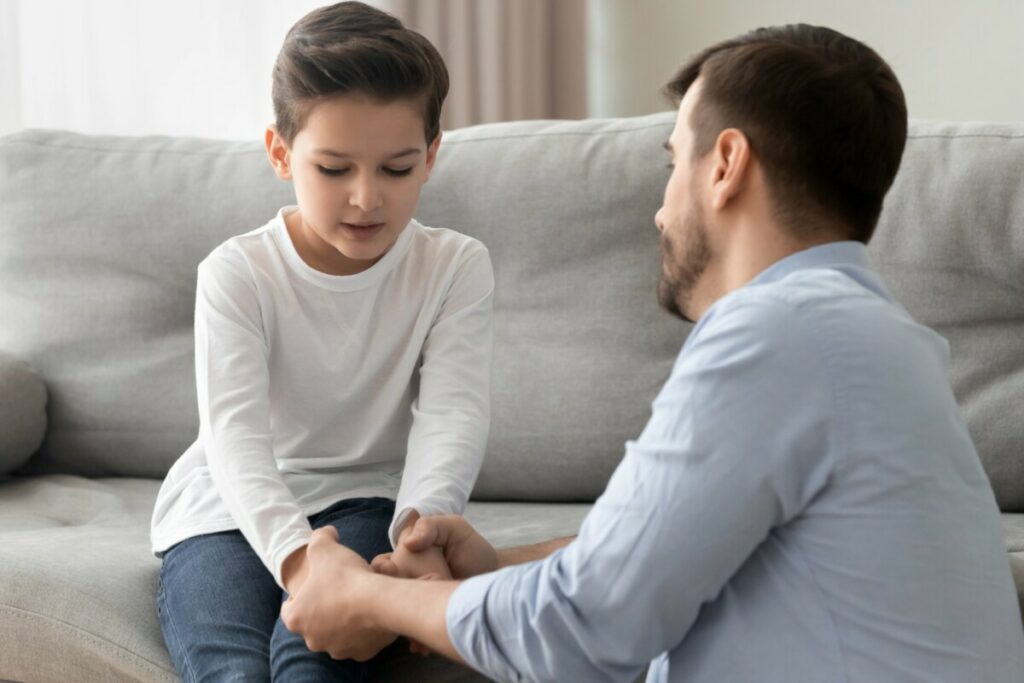10 Effective Punishments for 10-Year-Olds
Do you have a 10-year-old? Are you wondering the best way to go about discipline for this age? Are you looking for effective suggestions? There are various punishments you could use but sometimes it can be hard to know which are most effective. If you are finding yourself in this situation, this article can help give you some ideas for effective punishments for your 10-year-old.
If you want to learn more about some effective punishments for 10-year-olds, keep reading.
1: Losing Privileges
When a child gets to the age of 10, they usually are starting to want more independence and freedom, especially when it comes to friends and recreational activities. Those things are becoming more and more important to them and it would seem like the end of the world to them if they were taken away.
It is not that you want to crush their world, but you do want them to feel the consequence of their action and teach them that if you make a mistake, there are consequences that follow that will take away some of that freedom and independence. This can teach them that their actions and decisions mean something.
2: Additional Responsibilities
No 10-year-old wants to do the chores they are already assigned even without it becoming a punishment. This is especially the case when they have plans with friends they are trying to get to after chores. By adding additional chores to their to-do list before they head out with friends, it may create some frustration but it will teach them that if they don’t want to do something, like extra chores, they should consider their actions and think about the consequences that might follow which possibly may include additional responsibilities.
3: Restitution
Restitution is not only an important next step after the child has done something wrong, especially if it has significantly affected others. This can seem like a major punishment to some children because of the dread of facing the person they wronged and admitting to them they messed up and are sorry.
This can help teach kids to take responsibility for their actions as well as how to be humble in asking for forgiveness from others. The response, whether positive or negative, from the person in need of the apology, can teach them that we don’t have control of how others respond but we do have control of our own emotions.
4: Mistake Emphasis
This punishment may seem repetitive and not as effective as some of the other ones, but emphasizing not only the fact that what they did was wrong but the reasoning behind why it was wrong.
For example, if your child stole a candy bar from the store, you would obviously have them return it and explain to the store employee what happened with an apology. It is also a good idea to explain to your child why stealing the candy bar was wrong and the bigger consequences that come with that if the habit to continue stealing persisted.
5: Have a Discussion
10-year-olds are still learning to choose between right and wrong. This would be a good opportunity to walk through exactly what happened and what the child’s thought process was when they made their decision. Help them identify what prompted the wrong thought, their emotions, clarity of thinking, their reasoning, and other factors.
Discussion helps the child recognize that they are getting older and how they can make educated decisions on their own in the future. This can help draw out their thinking process so they can be aware when those thoughts and ideas come into their head again, they can avoid them.
6: Present Options
By presenting multiple, possible options that are dependent on their choices and actions, they learn that their choices and actions have power. 10-year-olds are learning how to be more independent and make their own choices.
If they have the option to go out with friends before doing their homework, help them understand they may not do well on their test the next day. Discuss how time spent now will help benefit them later, teaching that the consequences of our actions can be positive or negative.
7: List Natural Consequences
This is one that you could either have an example of or could have a legitimate situation to teach the principle of consequences.
For example, if they don’t clean off their bed, they will not have a place to sleep for the night. If they don’t do their laundry, they won’t have any clothes to wear the next day. If they don’t do their dishes, they won’t have a bowl to put their cereal in the morning.
These are all consequences that don’t necessarily affect other people, but they do affect themselves which can help teach them to take personal responsibility.

8: Make Them Choose
Similar to the technique of presenting multiple options regarding consequences, ask them to choose their consequence. This will force them to think not only that what they did was wrong, but also understand that our choices bring consequences. If they need ideas you can list a few examples, but for the most part, let them try and come up with some on their own. Guide their creative minds to something that fits the size of the offense.
9: Create a Contract
This may be an idea for more serious mistakes or mistakes that have been repeated several times and they just can’t seem to understand why they shouldn’t continue. Creating a contract with a physical piece of paper can help be a tangible reminder of what they agreed not to do and what will happen if they break that agreement between you and them.
10-year-olds are generally still accepting of family and parents’ beliefs. They will want to please parental figures and make them proud, even though they are beginning to question some authoritative figures. Help them to understand a parent’s point of view, and think about why you may value or discourage certain behaviors.
10: Timeout
A timeout may seem juvenile for a 10-year-old but this allows them time to calm down and think more logically. This also provides an ideal opportunity for a mature discussion, something they have seen older children and adults do. Explain to them why their actions were harmful, and talk about other courses of action that would have been more positive.

